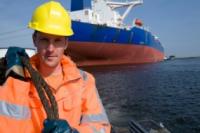
The Maritime Industry Authority (Marina) is working to hurdle the next audit of the European Maritime Safety Agency (Emsa).
“The audit team will be back in the Philippines to do spot checking sometime during the end of September or beginning of October. We acknowledge that a negative performance could mean withdrawal [of recognition of Philippines-issued seamen’s books], so we are setting all our guns toward making it by October,” Marina Administrator Maximo Mejia said.
The European Delegation has requested Philippines authorities overseeing the administration of training, education and certification of Filipino seamen to submit a report in July on the deficiencies that the European auditing team has observed during its April audit.
The report, Mejia said, will tackle the observations of the audit team on three areas: general recommendations made by the team on maritime education, evaluation of the implementation of the management-level or advanced subjects, and evidence that there is no longer conflict of interest among assessors of education.
Mejia, likewise, said the European audit team has not given a definite deadline to meet objectives and face non-recognition of Philippines-issued certificates, but admitted the risk is always there.
“The risk is always there. It’s not set in stone na kung hindi tayo pumasa in October...November wala na. The EU has not made any such threat anything like that, though theoretically anything is possible,” Mejia said.
The Emsa is tasked to assess countries supplying EU member-states with seamen and make recommendations to the European Commission on thesesupplying countries as to the standards being upheld in the said countries.
The European Commission’s Director General for Mobility and Transport has received the Emsa’s report of the recent October audit of the Philippines.
The body noted that while the Philippines is making progress on adjusting its system to the the standards set by the International Convention on Standards of Training, Certification and Watchkeeping for Seafarers (STCW), further work is needed.
The STCW convention sets the global minimum qualifications for masters, officers and watch personnel engaged in international shipping.
A statement from the European Delegation early in May noted that failure to resolve any remaining issue may result in the loss of EU recognition of Philippines-issued certificates for seamen.
Early in April, Transportation Secretary Joseph Emilio Abaya revealed that more than 400 000 Filipino seamen are deployed abroad and are 35-40 percent of the world’s mariners.
Data from the Philippine Overseas Employment Administration indicate that in 2012, 1.8 million Filipino workers were deployed abroad, 400, 000 of them are sea-based workers.
Source: businessmirror.com.ph
![[ad-side]](http://www.crewing24.com/ad_images/80_banner.jpg)
![[ad-side]](http://www.crewing24.com/ad_images/83_banner.jpg)
![[ad-side]](http://www.crewing24.com/ad_images/93_banner.jpg)
![[ad-side]](http://www.crewing24.com/ad_images/65_banner.jpg)
![[ad-side]](http://www.crewing24.com/ad_images/102_banner.jpg)
![[ad-side]](http://www.crewing24.com/ad_images/48_banner.jpg)
![[ad-side]](http://www.crewing24.com/ad_images/105_banner.jpg)
![[ad-side]](http://www.crewing24.com/ad_images/82_banner.jpg)
![[ad-side]](http://www.crewing24.com/ad_images/115_banner.jpg)
![[ad-side]](http://www.crewing24.com/ad_images/94_banner.png)